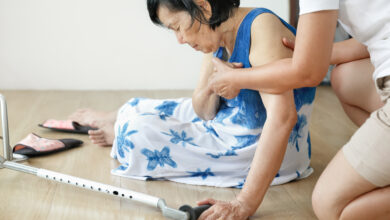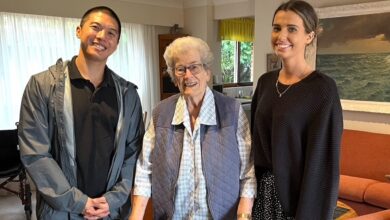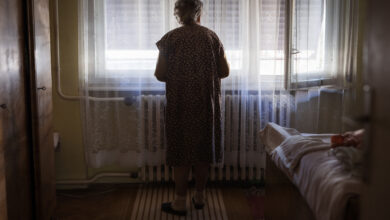Hopes historic WHO report on falls prevention has global impact

Experts hope that recommendations in a new technical report from the World Health Organization (WHO) will reduce global suffering and loss as a result of falls.
The report, called “Step safely: Strategies for preventing and managing falls across the life-course”, urges governments, health professionals and practitioners around the world to take urgent action to prevent and manage falls using evidence-based strategies.
Falls take the lives of 684 000 people worldwide each year and leave another 172 million with a short- or long-term disability. It’s a significant – and rapidly growing – global public health problem, with fall-related deaths having risen far faster than any other type of injury over the last two decades.
Ageing populations and increasing urbanisation are chiefly to blame.
The WHO commissioned researchers from The George Institute for Global Health and the UNSW School of Population Health in Sydney to conduct a review of high-quality global evidence on falls prevention.
Professor Rebecca Ivers, Head of the UNSW School of Population Health and Founding Director of the WHO Collaborating Centre for Injury Prevention and Trauma Care, was an executive editor of the report and co-authored the evidence synthesis that informed it.
She says the fact that the WHO has poured time and resources into assessing falls prevention strategies is historic.
“The WHO has never done anything on falls before,” she told Aged Care Insite. “It’s recognition of the rising impact falls are having on older people across the world.”
Ivers says falls prevention can’t be tackled as a one-off health issue because they affect people throughout their lives.
Her evidence synthesis report looks at falls prevention strategies for five key population groups: children and adolescents, people in occupational settings, community dwelling older adults, older people living in residential care facilities, and older people receiving care in hospitals.
Prevention is key
The vast majority of deaths from falls occur in low and middle-income countries and most can be prevented, says the report.
Prevention is key, says Ivers, because many health systems around the world “aren't set up to deal with the health problems of ageing”.
“In Australia, by contrast, falls are well recognised by health departments because we know what the cost is,” she said.
Appropriate strategies go a long way to prevent falls, says the report.
For older people, these include strength and balance training, home safety assessments and modifications for those with mobility or visual impairments, and medication reviews (in the knowledge that psychotropic medications can increase the risk of falls).
But while the WHO report is a step in the right direction, it needs to be supported by implementation strategies at the national and local level to understand which recommendations are having the greatest impact, says Ivers.
“The report recommends that people collect data to monitor the number of injuries and to measure the effectiveness of interventions,” she said.
“If you don’t have data it’s hard to know whether strategies are working or not.”
Email: [email protected]





